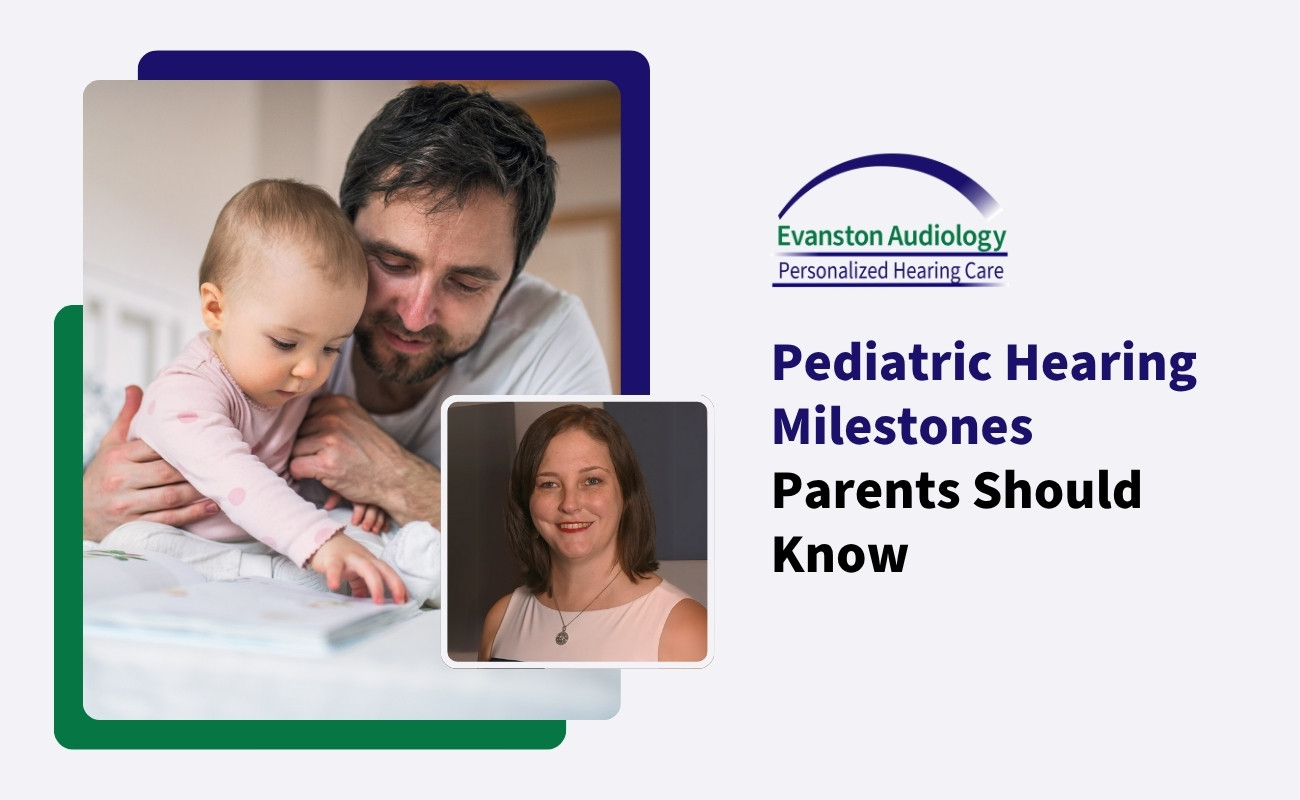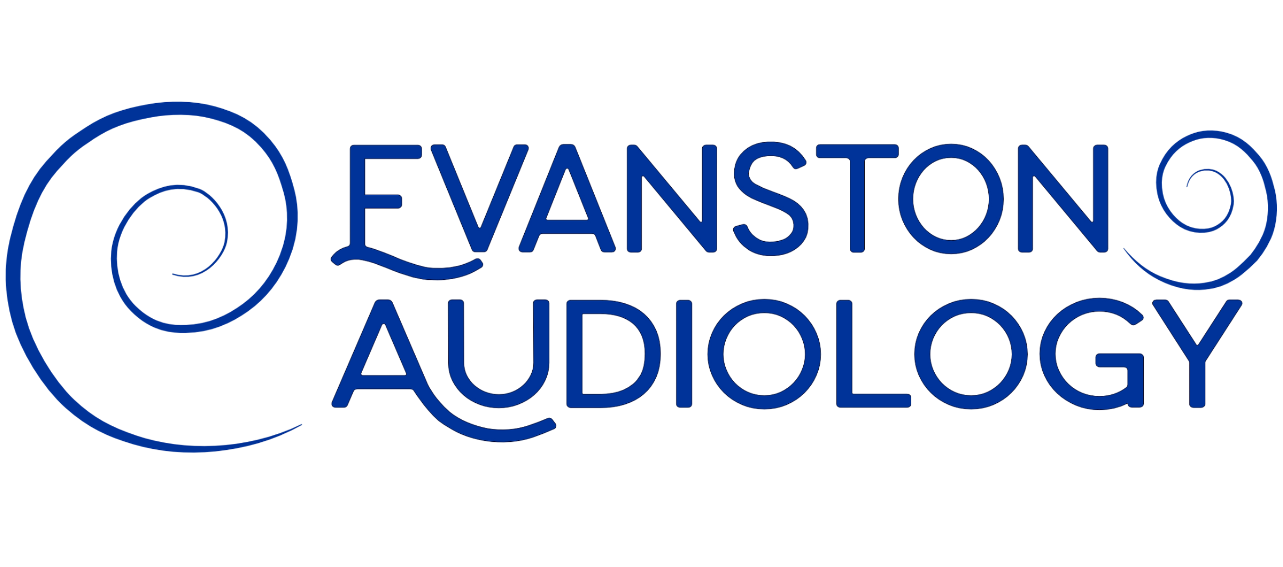Pediatric Hearing Milestones Parents Should Know

As a parent, watching your child grow and develop brings countless moments of joy and wonder. From their first smile to their first steps, each milestone marks an important stage in their journey. Among these developmental markers, hearing milestones play a particularly crucial role in your child's overall growth, affecting everything from language development to social interaction and academic success.
Dr. Dunckley is proud that her very first job in audiology was to complete newborn hearing screenings. Universal newborn hearing screenings became available in 2000 and mandated in Illinois in 2003. The majority of babies born in Illinois are screened before leaving the hospital and are followed up within a month when needed. However, passing the newborn hearing screening does not mean that issues will never come up. That’s why it’s important to understand what to expect at each stage of your child's hearing development.
The following milestones can help you identify potential concerns early and ensure your child receives the support they need to thrive. Dr. Dunckley has worked with countless families throughout the Chicago area, helping parents navigate their children's hearing health journey with confidence and clarity. We offer hearing evaluations for children aged three years and up. It is recommended to schedule a pediatric hearing evaluation if the following milestones are not being met, or if a parent or teacher has a concern that a child is not hearing well.
Early Infancy: Birth to 3 Months
During the first few months of life, your baby's hearing system is already functioning, though it continues to mature. Newborns can hear sounds and should demonstrate clear responses to loud noises by startling or blinking. By 2-3 months, babies typically begin to quiet down when they hear familiar voices, particularly their parents' voices, and may turn their head slightly toward sounds.
Watch for these early signs: your baby should react to sudden loud sounds, seem soothed by your voice, and begin to make cooing sounds. If your newborn doesn't seem to respond to loud sounds or fails to show recognition of familiar voices, these could be early indicators that warrant professional evaluation.
Building Awareness: 3 to 6 Months
As your baby grows, their hearing responses become more sophisticated. Between 3-6 months, children typically begin turning their head toward sounds more consistently and may smile when they hear your voice. They start to notice and respond to changes in tone of voice, often becoming upset by angry voices or calmed by gentle, soothing tones.
During this period, babies also begin producing more varied sounds themselves, progressing from simple cooing to more complex babbling that includes different vowel sounds. They may start to laugh and express excitement vocally. If your baby isn't responding to sounds from different directions or seems delayed in vocal development, consider scheduling a hearing evaluation.
Active Listening: 6 to 12 Months
The second half of your baby's first year brings significant developments in hearing and communication. By 6-9 months, children should turn toward sounds reliably and begin to understand simple words like "no" or "bye-bye." They often start responding to their name and may look toward familiar sounds like the doorbell or telephone.
Between 9-12 months, babies typically begin imitating sounds and may say their first words. They should respond to simple requests when combined with gestures and show interest in music and songs. This is also when many children begin to localize sounds more precisely, turning not just their head but their whole body toward interesting sounds.
Toddler Development: 12 to 24 Months
The toddler years bring rapid language development that depends heavily on good hearing. By 12-15 months, children should be saying several words clearly and following simple one-step directions. They typically enjoy listening to stories and songs and may attempt to sing along with familiar tunes.
Between 18-24 months, vocabulary expands dramatically, with most children learning new words daily. They should be able to identify body parts when asked and follow two-step directions. Their speech should be becoming clearer, with family members understanding most of what they say by age 2.
Preschool Years: 2 to 5 Years
During the preschool years, children's hearing and language skills become increasingly sophisticated. Two-year-olds should have a vocabulary of at least 50 words and be combining words into simple sentences. They should be able to hear and understand speech in slightly noisy environments, like when the television is on or during family conversations.
By age 3-4, children should be speaking in complete sentences, asking lots of questions, and telling simple stories. They can follow complex instructions and should be understood by strangers most of the time. Their ability to hear in background noise continues to develop, though they may still struggle in very noisy environments.
Five-year-olds typically have well-developed language skills and can engage in conversations, understand jokes and stories, and follow multi-step directions easily. They should be able to hear whispered speech and sounds from across the room.
Red Flags: When to Seek Professional Help
Several warning signs may indicate hearing difficulties in children. Watch for delayed speech development, frequent requests for repetition, difficulty following directions, or seeming inattentive during conversations. Children who speak loudly, have unclear speech for their age, or struggle academically may also be experiencing hearing challenges.
Physical symptoms can also indicate hearing problems. Frequent ear infections, complaints of ear pain, or visible discharge from the ears warrant medical attention. Some children may tilt their head when listening or position themselves close to sound sources like the television or radio.
The Impact of Untreated Hearing Loss
When hearing difficulties go unaddressed, they can significantly impact a child's development. Language delays often occur, affecting not just communication but also reading and academic performance. Social development may suffer as children struggle to interact with peers, potentially leading to isolation or behavioral issues.
Early intervention makes a tremendous difference in outcomes. Children who receive appropriate support for hearing difficulties typically catch up to their peers more quickly and experience fewer long-term challenges. The developing brain is remarkably adaptable, making early childhood an optimal time for addressing hearing concerns.
Supporting Your Child's Hearing Health
Parents can take several steps to protect and support their children's hearing development. Regular pediatric checkups should include hearing screenings, and any concerns should be addressed promptly. Protecting children from loud noises, treating ear infections appropriately, and creating rich language environments all contribute to healthy hearing development.
Reading to your child regularly, engaging in conversations, and limiting background noise during important listening times can all support hearing and language development. If your child uses hearing aids, we provide specialized pediatric hearing aid fitting services, working closely with families to select the most suitable devices and provide ongoing support to achieve optimal results.
Professional Evaluation and Support
If you have concerns about your child's hearing development, professional evaluation can provide clarity and peace of mind. We conduct thorough, child-friendly hearing assessments designed to be non-invasive and comfortable for young patients. Depending on your child's age and cooperation level, we use different testing methods to accurately assess their hearing capabilities.
When hearing difficulties are identified, various treatment options are available depending on the cause and severity. For conductive hearing loss caused by ear infections or blockages, medical treatment may resolve the issue. For sensorineural hearing loss, management options include hearing aids, cochlear implants, or other assistive technologies, along with speech and language therapy support.
Schedule Your Child's Hearing Evaluation in Evanston
Your child's hearing health plays a vital role in their overall development and future success. If you've noticed any delays in your child's hearing or language milestones, or if you simply want to ensure everything is developing normally, we encourage you to schedule a comprehensive pediatric hearing evaluation. Our experienced team understands the unique needs of children with hearing difficulties and is committed to providing compassionate, comprehensive care. Contact our Evanston office today to take the first step in supporting your child's hearing health and communication development.
Contact us to learn more about our services and hearing aid options.
Office
Visit us at 1811 Benson Ave, Evanston.
Located on the corner of Benson and Clark.
For those traveling on public transportation, we are conveniently located just steps away (600 ft) from the Davis CTA and Pace bus terminal, and Purple Line hub. We are also only 600 ft from the Metra Union Pacific-North (UP-N) Davis stop.
Opening Hours
Holiday Closures
2026: 1 January, 19 January, 25 May, 4 July, 7 September, 26-27 November, 25 December
2027: 1 January

